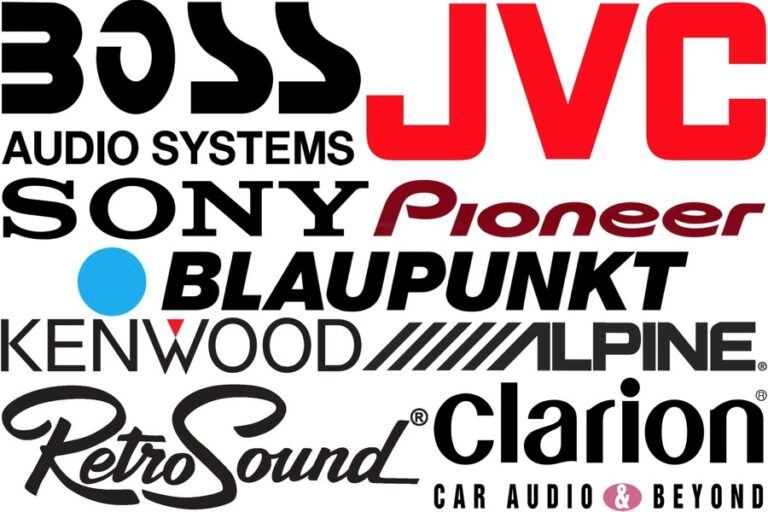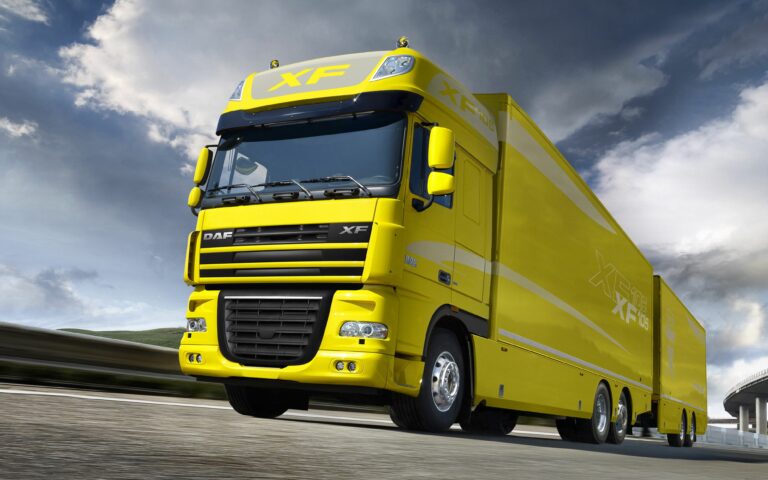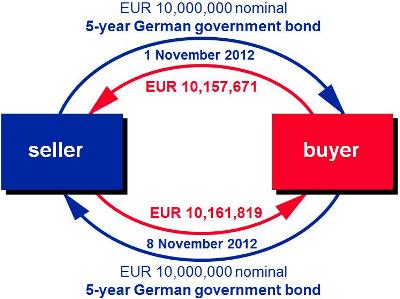All British Car Brands: A Comprehensive Guide to Automotive Heritage and Innovation
All British Car Brands: A Comprehensive Guide to Automotive Heritage and Innovation cars.truckstrend.com
The phrase "British car brands" evokes a rich tapestry of history, engineering prowess, and iconic design. From the opulent luxury of Rolls-Royce to the nimble agility of Lotus, and the rugged utility of Land Rover, British automotive marques have left an indelible mark on the global stage. This article delves into the fascinating world of All British Car Brands, exploring their storied past, their evolving present, and the enduring legacy that continues to captivate enthusiasts worldwide.
Introduction: The Enduring Legacy of British Motoring
All British Car Brands: A Comprehensive Guide to Automotive Heritage and Innovation
British car brands are more than just vehicles; they are symbols of innovation, craftsmanship, and a unique national identity. For over a century, the United Kingdom has been a crucible of automotive excellence, pioneering technologies, setting new standards for luxury, and producing some of the most desirable and distinctive cars ever made. The importance of British car brands lies not only in their economic contribution but also in their cultural impact, shaping perceptions of style, performance, and engineering precision. Despite shifts in ownership and global manufacturing landscapes, the spirit of British motoring endures, celebrated for its blend of tradition and forward-thinking design.
The Golden Era: A Pantheon of Automotive Icons
The early to mid-20th century marked a golden age for British automotive manufacturing. This period saw the rise of numerous brands that would become household names, synonymous with particular qualities and attracting a global following.
- Luxury and Prestige: Brands like Rolls-Royce (founded 1904) and Bentley (founded 1919) epitomized unparalleled luxury, bespoke craftsmanship, and engineering excellence, catering to royalty, celebrities, and the discerning elite. Their cars were, and largely remain, statements of ultimate sophistication.
- Sporting Prowess and Elegance: Jaguar (founded as SS Cars in 1922, renamed Jaguar in 1945) became renowned for its blend of performance and elegant design, with models like the E-Type achieving legendary status. Aston Martin (founded 1913) carved out its niche with high-performance grand tourers, famously associated with James Bond.
- Affordable Sports Cars: Brands like MG (Morris Garages, founded 1924) and Triumph (founded 1885, cars from 1923) democratized the sports car, offering exhilarating driving experiences to a broader audience. These roadsters captured the spirit of freedom and fun.
- Innovation and Utility: Land Rover (launched 1948) pioneered the civilian 4×4, becoming a global benchmark for off-road capability and rugged luxury. Mini (launched 1959 by British Motor Corporation) revolutionized car design with its compact, space-efficient, and fun-to-drive front-wheel-drive layout, becoming a cultural icon.
- Engineering Purity: Lotus (founded 1948 by Colin Chapman) focused on lightweight construction and exceptional handling, embodying the philosophy "simplify, then add lightness."
This era showcased British ingenuity, from the precision engineering of luxury engines to the innovative packaging of the Mini, establishing a diverse and vibrant automotive industry.
Challenges and Transformations: Navigating a Changing World
The latter half of the 20th century brought significant challenges to the British automotive industry. Global competition intensified, industrial relations became strained, and many independent marques struggled to survive. This led to a wave of mergers, nationalizations, and ultimately, foreign acquisitions.
- Consolidation and Nationalization: The formation of British Leyland in 1968, consolidating many major British brands (Austin, Morris, MG, Triumph, Rover, Jaguar, Land Rover), was an attempt to create a strong national champion. However, it faced immense difficulties, leading to government ownership and a period of decline.
- The Rise of Foreign Ownership: As the century drew to a close and into the new millennium, many iconic British brands found new homes under international corporate umbrellas. BMW acquired Mini and Rolls-Royce (car manufacturing rights), while Volkswagen Group acquired Bentley. Ford briefly owned Jaguar and Land Rover before selling them to India’s Tata Motors in 2008. MG and Rover eventually came under Chinese ownership (SAIC Motor). Lotus is now part of China’s Geely Holding.
- Rebirth and Reinvention: Despite foreign ownership, many of these brands have experienced a renaissance. New investment has allowed for significant R&D, leading to new models that honor their heritage while embracing modern technology. Rolls-Royce and Bentley, under German stewardship, have achieved unprecedented sales and luxury benchmarks. Jaguar Land Rover, under Tata, has seen massive expansion and product development. This transformation highlights the resilience of the brands themselves and the enduring value of their British heritage.
Modern British Automotive Landscape: Niche, Luxury, and Innovation
Today, the British automotive landscape is characterized by a strong focus on high-end luxury, performance, and niche manufacturing. While mass-market production has largely shifted elsewhere, the UK remains a hub for automotive design, engineering, and specialist production.
- Hypercars and Supercars: McLaren Automotive (re-established as a standalone car manufacturer in 2010) has emerged as a leading producer of cutting-edge supercars and hypercars, leveraging its Formula 1 heritage. Aston Martin continues to produce exquisite grand tourers and has ventured into hypercar territory.
- Continuing Luxury Dominance: Rolls-Royce and Bentley remain at the pinnacle of automotive luxury, with all manufacturing still based in the UK, albeit with foreign ownership. Their commitment to bespoke craftsmanship and exclusivity is stronger than ever.
- Specialist and Bespoke Manufacturers: Brands like Morgan Motor Company (founded 1910) continue their tradition of hand-built, characterful sports cars, often using traditional materials like wood. Other smaller, highly specialized manufacturers and tuners also thrive, catering to enthusiasts seeking unique vehicles.
- Design and R&D Hubs: Even brands primarily manufactured elsewhere often retain significant design, engineering, and R&D operations in the UK, leveraging the country’s skilled workforce and rich automotive legacy. This includes companies like Nissan and Toyota, which have major manufacturing plants in the UK.
The modern British automotive scene is a testament to adaptation, focusing on areas where its unique strengths in design, engineering, and craftsmanship can command premium value.
The Enduring Appeal: Why British Cars Remain Cherished
The allure of British cars is multi-faceted and deeply rooted in their heritage:
- Design Aesthetics: From the elegant lines of a Jaguar E-Type to the distinctive silhouette of a Mini, British cars often possess a unique aesthetic appeal, blending classic proportions with innovative styling.
- Engineering Prowess: Despite challenges, British engineering has consistently delivered vehicles known for their robust mechanics, refined powertrains, and sophisticated chassis tuning.
- Heritage and Storytelling: Each British brand comes with a rich narrative of innovation, racing success, and cultural impact, adding a layer of depth and desirability to the vehicles.
- Exclusivity and Craftsmanship: Many British brands, particularly in the luxury and performance segments, emphasize hand-built quality, bespoke options, and a level of attention to detail rarely found in mass-produced vehicles.
- Driving Experience: Whether it’s the refined comfort of a Bentley, the thrilling dynamics of a Lotus, or the rugged capability of a Land Rover, British cars are often celebrated for their distinctive and engaging driving experiences.
Key Considerations for Enthusiasts and Buyers
For those considering owning or learning more about British car brands, here are some practical insights:
- Understand Current Ownership: While a car might be "British," its current parent company and manufacturing location can influence everything from parts availability to service networks. Researching this is key, especially for modern vehicles.
- Classic vs. Modern: The market for classic British cars is vibrant but requires specific knowledge about maintenance, parts sourcing (often from specialist suppliers), and restoration. Modern British cars, even those under foreign ownership, generally benefit from contemporary reliability and service networks.
- Maintenance and Running Costs: Luxury and performance British cars often come with higher maintenance costs due to specialized parts, complex engineering, and skilled labor requirements. Even some classic models can be demanding.
- Resale Value: Iconic models and well-maintained classics can hold their value exceptionally well, sometimes appreciating. Newer luxury and performance models tend to depreciate like other high-end vehicles, but strong brand appeal can help.
- Specialist Clubs and Communities: The British car scene is supported by a passionate community of enthusiasts, owners’ clubs, and specialist mechanics. Joining these can be invaluable for advice, support, and social interaction.
Table: A Snapshot of Prominent British Car Brands (Past and Present)
| Brand Name | Status / Current Ownership | Primary Focus / Specialization | Market Position / Price Tier | Key Note |
|---|---|---|---|---|
| Aston Martin | Active / Independent (majority UK-owned) | Luxury Sports Cars, Grand Tourers, Hypercars | Ultra-Luxury, Performance | Iconic British marque, synonymous with James Bond. |
| Bentley | Active / Volkswagen Group (Germany) | Ultra-Luxury Sedans, SUVs, Grand Tourers | Ultra-Luxury, Bespoke | Manufactured in Crewe, England, since 1946. |
| Jaguar | Active / Tata Motors (India) | Luxury Sedans, Sports Cars, SUVs | Luxury, Premium Performance | Blends performance with elegance; electric vehicle focus. |
| Land Rover | Active / Tata Motors (India) | Premium SUVs, Off-Road Vehicles | Luxury, Premium Utility | Global leader in luxury 4x4s, manufactured in the UK. |
| Lotus | Active / Geely Holding (China) | Lightweight Sports Cars, Performance Vehicles, EVs | Niche Performance, Premium EV | Renowned for handling and lightweight philosophy. |
| McLaren | Active / Independent (UK-owned) | Supercars, Hypercars | Ultra-High Performance | Born from Formula 1 racing, cutting-edge technology. |
| Mini | Active / BMW Group (Germany) | Compact Premium Cars, Hatchbacks, SUVs | Premium Compact | Iconic design, modern iteration produced in Oxford. |
| Morgan | Active / Investindustrial (Italy) | Hand-Built Traditional Sports Cars | Niche, Bespoke, Luxury | Unique, artisanal approach; wooden chassis elements. |
| Rolls-Royce | Active / BMW Group (Germany) | Ultra-Luxury Sedans, Coupes, Convertibles, SUVs | Pinnacle of Ultra-Luxury | Unrivalled in bespoke luxury, manufactured in Goodwood. |
| MG | Active / SAIC Motor (China) | Budget-Friendly SUVs, Hatchbacks, EVs | Mass-Market, Affordable EV | Historic British brand, now produced primarily in China. |
| Triumph | Defunct (Automotive) / Various owners | Sports Cars, Sedans | Classic/Collector’s | Iconic sports car maker, now primarily a motorcycle brand. |
| Rover | Defunct (Automotive) / SAIC Motor (China) | Sedans, Hatchbacks, SUVs | Historic Mass-Market | Major British manufacturer, ceased car production in 2005. |
| Austin Healey | Defunct (Automotive) / BMW Group (Germany) | Sports Cars | Classic/Collector’s | Famed for classic roadsters like the "Bug Eye" Sprite. |
| TVR | Active (limited production) / UK-owned | High-Performance Sports Cars | Niche, High Performance | Known for raw power and distinctive styling. |
Note: "Price Tier" is a general indication of market positioning. Actual prices vary wildly by model, specification, and market conditions.
Frequently Asked Questions (FAQ)
Q1: Are all British cars still made in Britain?
A1: Not all, but many prominent British brands still have significant manufacturing operations in the UK. Rolls-Royce, Bentley, Jaguar, Land Rover, McLaren, Morgan, and Mini (for some models) all manufacture vehicles in Britain. However, brands like MG are now primarily manufactured in China, while their design and engineering might still have UK input.
Q2: What are the most luxurious British car brands?
A2: Rolls-Royce and Bentley are universally recognized as the epitome of British automotive luxury, offering unparalleled bespoke craftsmanship and exclusivity. Aston Martin and high-end Land Rover models (like Range Rover SV) also sit firmly in the luxury segment.
Q3: Which British car brands are known for performance?
A3: McLaren and Lotus are renowned for their pure performance, focusing on lightweight construction and exceptional driving dynamics. Aston Martin and Jaguar also have a strong heritage and current lineup of high-performance sports cars and grand tourers.
Q4: Are there any affordable British car brands left?
A4: While the traditional mass-market British brands (like Rover and Austin) have largely ceased to exist, the MG brand, now under Chinese ownership, offers a range of more affordable hatchbacks, SUVs, and EVs, though their primary manufacturing is no longer in the UK. Other British-designed vehicles (e.g., some Nissan or Toyota models made in UK factories) might also fit an "affordable" category but aren’t purely "British brands."
Q5: What is the future of the British automotive industry?
A5: The future of the British automotive industry appears to be focused on high-value segments: luxury, performance, specialist vehicles, and increasingly, electric vehicle (EV) development. Significant investments are being made in EV battery production and EV manufacturing by major players like Jaguar Land Rover and Nissan, signaling a shift towards sustainable mobility while retaining high-end manufacturing expertise.
Conclusion: A Resilient and Distinctive Legacy
The story of All British Car Brands is one of remarkable resilience, continuous evolution, and an enduring commitment to excellence. From their foundational role in the early days of motoring to their current position as leaders in luxury, performance, and bespoke craftsmanship, British marques have consistently pushed boundaries. Despite changes in ownership and global manufacturing trends, the spirit of innovation, the dedication to quality, and the unique design flair that define British motoring remain strong. Whether you admire the stately elegance of a Rolls-Royce, the thrilling dynamics of a McLaren, or the rugged capability of a Land Rover, the distinct character of British cars continues to captivate, ensuring their cherished place in the automotive world for generations to come.



